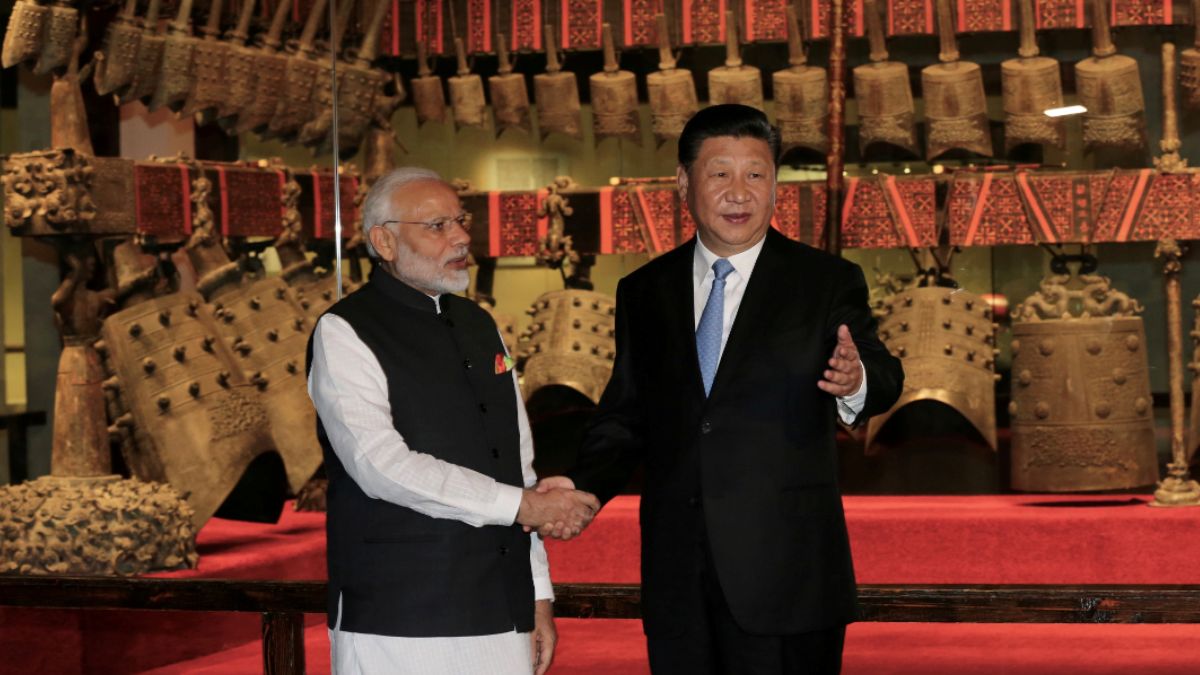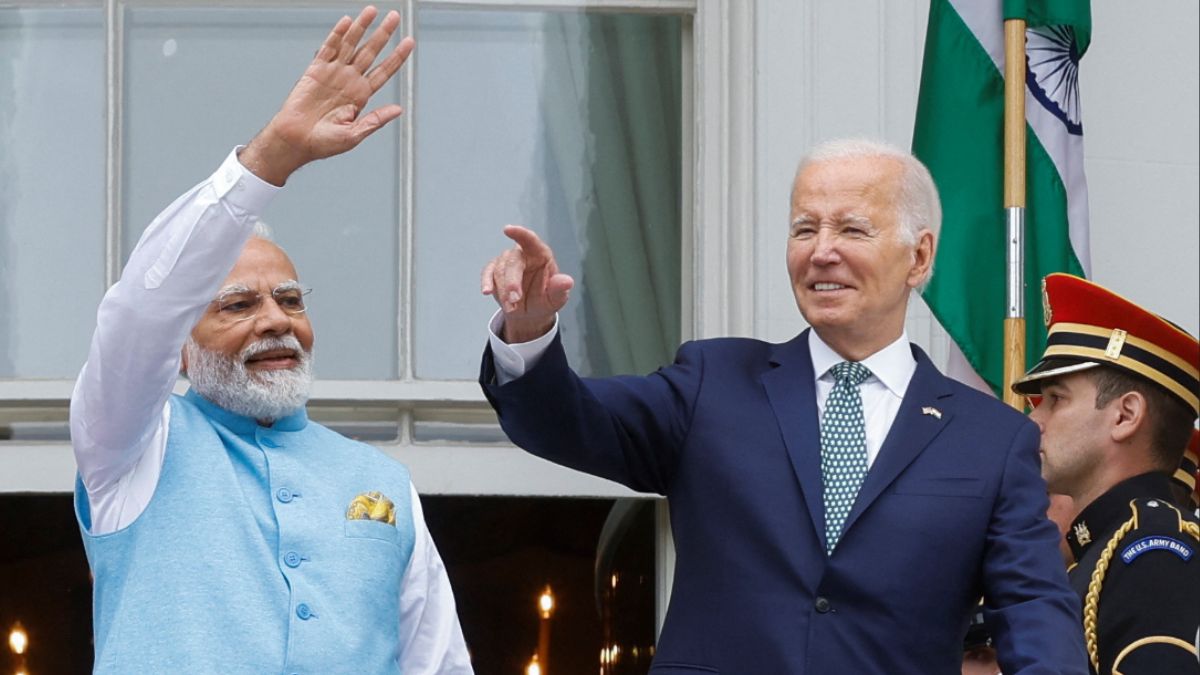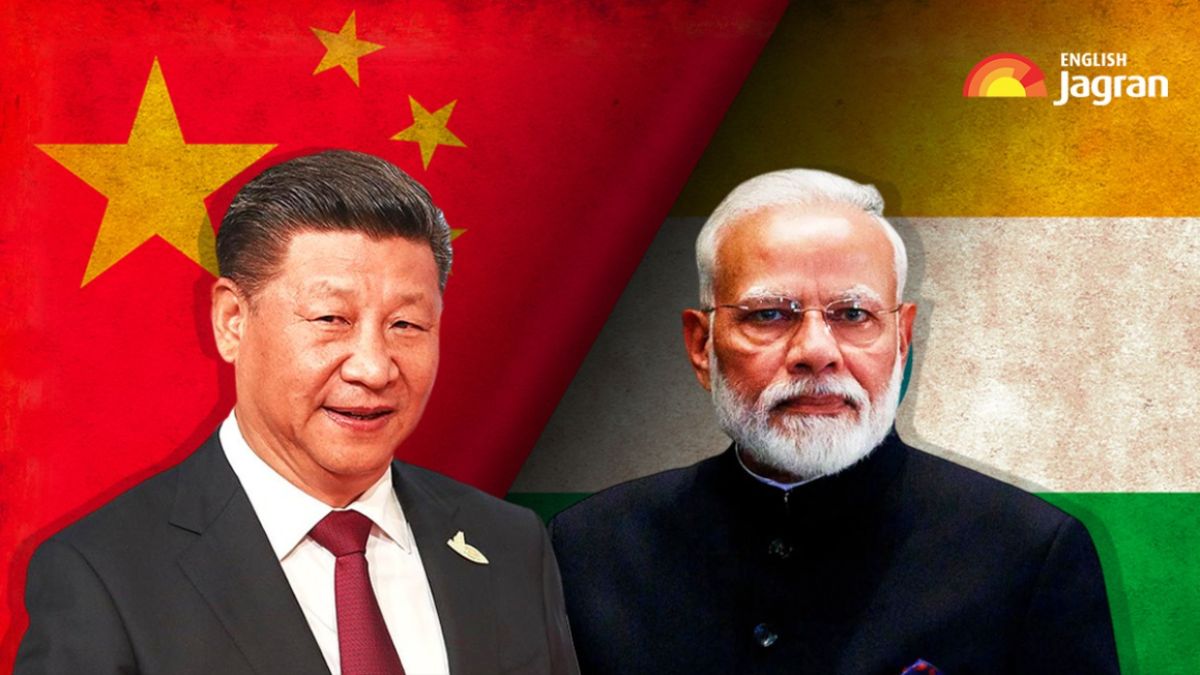- By Sukanya Saha
- Sat, 09 Sep 2023 04:32 PM (IST)
- Source:JND
As the globe's most influential leaders convened in New Delhi this weekend to tackle the myriad global challenges, one notable absence was China's Xi Jinping. He has never been absent from a G20 summit since assuming power in 2012. This departure from his customary presence at past G20 gatherings has prompted inquiries regarding the underlying motivations behind this decision.
China's second-highest-ranking official, Premier Li Qiang, has arrived in India to represent the country at the summit as a stand-in for Jinping. This reluctance has led to various speculations and explanations, ranging from concerns about domestic challenges in China to a possible diplomatic snub directed at the host nation, India, which has strained relations with China due to the ongoing border dispute.
In an exclusive interview with Jagran English, Richard Gowan, UN Director of the International Crisis Group, delved into the potential explanations for Xi Jinping's non-attendance at the G20 Summit, India's emergence as a prominent advocate for the Global South, and the summit's significance in bolstering its strategic ties with Western nations.
Xi Jinping's No-Show At G20:
Discussing the possible reason behind Xi Jinping's decision to skip the G20 summit, Gowan explained that his absence signifies "friction" between China and India. India has strategically used the G20 platform to establish itself as a global leader, particularly representing the Global South, a stance that discomforts China, which seeks to lead the non-western world through multilateral forums. This competition has lingered in the background of G20 meetings, and Xi Jinping's absence highlights this rivalry. While this may strain relations with China, it appears to be a calculated risk taken by Prime Minister Narendra Modi to bolster India's standing as a global leader on the G20 stage.
"I think that this may be a necessary price for India to pay in using the G20 platform to raise its credentials as a global leader. It was always obvious that would lead to corruption with China, but I would imagine that Prime Minister Modi had understood that this was a risk around how India has been positioned," he said.
Discussing whether the Chinese President is deliberately avoiding a meeting with Western leaders by not attending the G20 summit, he said that there are two possible explanations for Jinping's non-participation in the event. Firstly, it could signify concerns about being marginalised in global leadership, which contradicts China's efforts to establish itself as a global leader.

(Image credit: Reuters)
"Secondly, I don't think that Xi Jinping wants to be on the spot," he said. Jinping might be attempting to avoid challenging encounters with Western leaders, such as US President Joe Biden or French President Emmanuel Macron, particularly regarding the Ukraine issue. The Western group will push for a strong stance on Ukraine at the summit, which has already complicated discussions on the final communique. China may align with Russia in opposing strong language on Ukraine, potentially leading to diplomatic tensions. Xi Jinping may want to avoid direct criticism from Western leaders and the difficulties associated with blocking such criticism, given China's delicate position concerning Ukraine, where it has advocated for peace while simultaneously aligning with Russia to prevent criticism of Moscow, he opined.
India Asserts Global South Voice At G20:
India has established itself as the representative of the Global South, denoting the developing or least developed nations. During the Voice of Global South summit held in January, Prime Minister Modi had emphasised that the world was grappling with a crisis and assured leaders from developing countries that their concerns align with India's, stating "your voice is India's voice" and "your priorities are India's priorities."
At the two-day G20 summit 2023, commencing this Saturday, India is gearing up to take significant steps to tackle a range of intricate global issues. These include addressing the concerns of the Global South, dealing with the repercussions of the Ukraine conflict, addressing economic challenges, and promoting inclusive growth amid a divided geopolitical landscape.
Speaking on how India can effectively represent the interests of developing and less developed nations at the G20 summit, Gowan said that the summit presents an opportunity for India to advocate for rebalancing the international system in favour of non-Western countries. India has been emphasising the need for reforms in international financial institutions to address the concerns of the Global South, a topic that will also be discussed at the upcoming Euro General Assembly session following the G20.
"India can leverage the summit to promote greater economic systems and elevate the influence of developing countries on the global stage," he said.
G20 To Shape India's Strategic Relations With Western World:
The intergovernmental forum, established in 1999 with the aim of uniting finance ministers from 19 countries along with the European Union to tackle global economic issues, has, since 2008, convened leaders of these nations every year. This has elevated the G20 Leaders' Summit to become one of the most prominent and influential geopolitical gatherings.
As India takes on the role of leading the G20 this year, Prime Minister Modi is looking to leverage the September 9-10 meeting to strengthen both his country's standing as a global leader and his own diplomatic reputation. This comes as he prepares to run for a third term in the upcoming Lok Sabha elections scheduled for next year.

(Image credit: Reuters)
Speaking on how significant the G20 summit could prove in strengthening India’s strategic ties with the Western nations, Gowan said, "I think the Western powers wanted to make this G20 a success for India. The US and its European allies really are investing a great deal in relations with India now.
"For many Western leaders, India's ambition to take on a greater leadership role, to position itself as a spokesperson for the Global South, is very welcome. So, this is a very important moment in terms of India's positioning itself on the global stage."
Moreover, Russian President Vladimir Putin's absence from the summit, he said, is beneficial for India, as it would have complicated PM Modi's participation in a summit where Putin could engage in open arguments with Western counterparts.
"Instead, Sergey Lavrov (Russia's Foreign Minister) will be there. He has the skin of a rhino. He goes to all these summits, absorbs all the Western criticism, and pretends that it has no effect on him. So, you know, he will be there batting for Russia but it isn't quite as sensitive as it would have been if Putin had been present," he shared.

